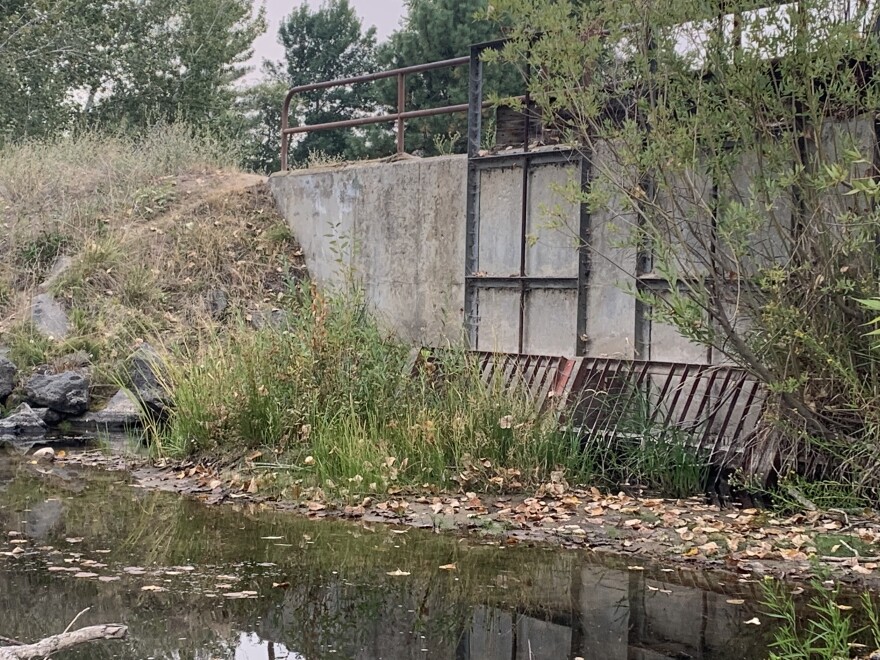Many irrigation canals in the Treasure Valley will be shut off this week, about a month earlier than usual.
The Boise City Canal Company shut its gates last Wednesday, and the Settlers irrigation district ended service for the season Friday, Sept. 10. Most other irrigation districts in the Treasure Valley will shut down Sept. 15.
“This year has been different because of the drought and the natural flows,” said Boise City Canal Company water manager Mike Harrison, who also manages some smaller districts through his private company. “Water rights have come into play and impacted a number of companies as a result,” he said.
He said Boise City Canal Company holds a more senior water right than most, and could actually be turned back on if river flows increase because of rainfall or decreased use by other irrigation districts. The district sold its reserve water to other irrigation districts earlier this year.
Much of Idaho is in drought, and more stored water has been used this year than usual. The Boise River Basin, which feeds most canals in the Treasure Valley, currently sits at 25% capacity according to the U.S. Geological Survey. The Payette River System is at 49% capacity.
Early shutoffs primarily impact residential irrigation, city parks and golf courses, but some smaller ag operations are also affected. Water’s been off already for weeks on Eagle Island, impacting some farmers and ranchers, Harrison said.
The Emmett area gets water from both river systems, a good thing for local agriculture users, said water manager Neil Shippy. While lower Emmett canals will shut off Sept. 17, the upper Emmett irrigation system, fed by the Payette River system, should remain flowing into October. Shippy said that will help area seed farmers and the winter wheat crop.
Nampa Parks and Recreation Superintendent Cody Swander said many of his parks have backup irrigation systems utilizing ponds, but park users can expect some brown spots as summer turns to fall.
“Never take irrigation for granted when you live in the desert,” he said.
One thing every homeowner can do regardless of where they get water for their lawns and gardens is to know how much water they need and avoid using too much. Those conditions, called the ‘evapotranspiration rate,’ change throughout the growing season, and are published by the U.S. Bureau of Reclamation.
The amount of water your lawn needs can even vary from city to city within the Treasure Valley, and water users should "adjust as you go," Swander said.
Not every canal operator will shut down as early. Boise Valley said it hopes to keep water on until at least October. South Boise's senior water right should allow irrigation through Oct. 15.
Everyone is hopeful that a strong winter will help refill area reservoirs and that next spring's snow melt will happen more slowly — but Harrison expects the change is here to stay.
"I think there will be a wake up call next year on how we use our water," he said. "How we divert, what we do with it in an effort to conserve and maybe recycle some of it, just to save a little. It's been very plentiful until now."
This story has been updated to reflect updated water system data from the USGS.



